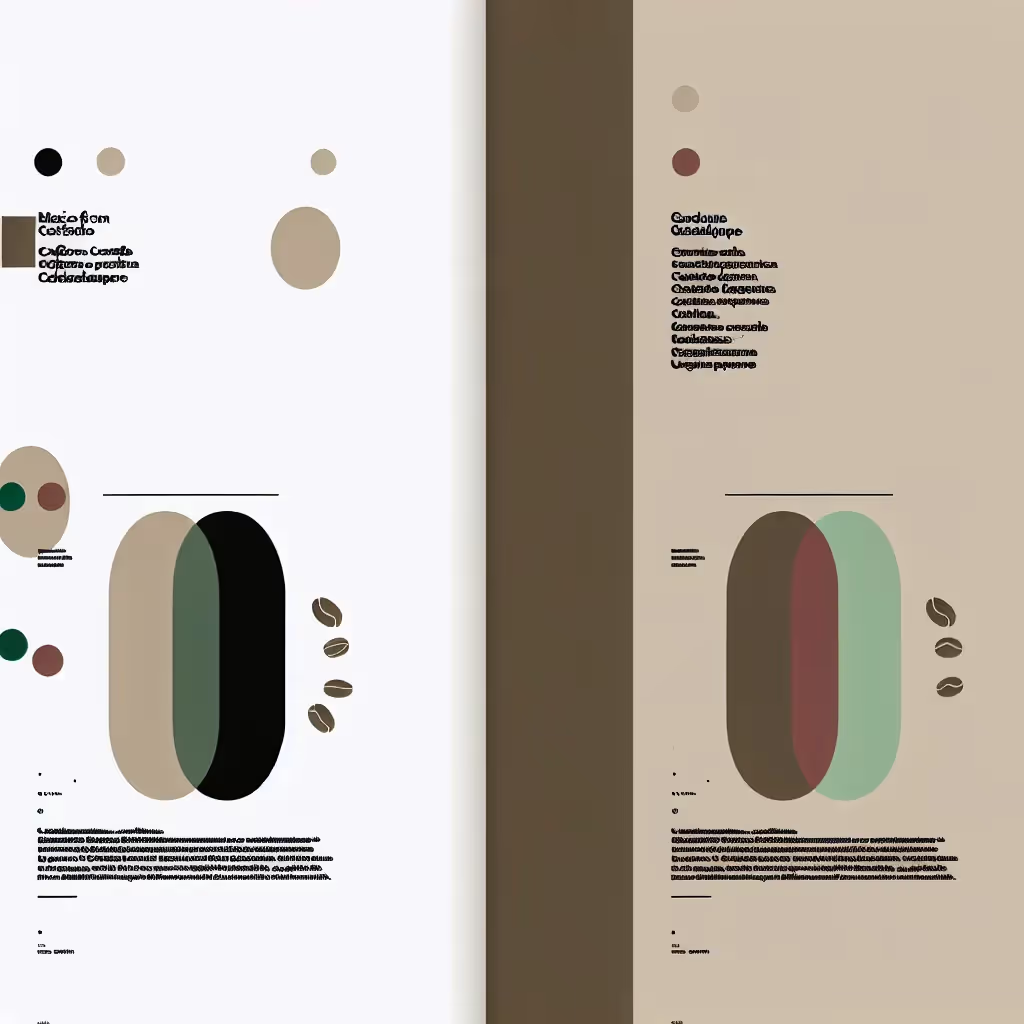Mexican Vs. Togolese Coffee
This comparison explores the unique qualities of Mexican and Togolese coffee, highlighting their distinct flavor profiles, growing regions, and production methods to help coffee enthusiasts make informed choices.

Brief Description
Mexican coffee is known for its light body, mild flavor, and bright acidity. Grown primarily in the southern states of Chiapas, Veracruz, and Oaxaca, Mexican coffee benefits from the region's rich volcanic soils and high altitudes. The country's coffee industry has a strong focus on organic and shade-grown practices, resulting in beans that are both environmentally friendly and full of character. Mexican coffee often exhibits nutty, chocolatey notes with a subtle fruitiness, making it a versatile and approachable choice for coffee lovers.
Togolese coffee, primarily Robusta, is grown in the lush Plateau Region of Togo. Known for its bold flavor and high caffeine content, Togolese coffee has been gaining recognition in recent years. The country's tropical climate and rich volcanic soils contribute to the unique characteristics of its coffee. Despite being a smaller producer, Togo is making strides in improving quality and sustainability practices, aiming to carve out its niche in the specialty coffee market.
Importance of Comparison
Comparing Mexican and Togolese coffee is crucial for coffee lovers seeking to expand their palate and understand the diverse world of coffee origins. These two regions offer contrasting experiences, from Mexico's light and bright Arabica to Togo's bold Robusta. Understanding their differences helps consumers make informed decisions based on flavor preferences, brewing methods, and sustainability practices.
Key Attributes
Origin
Mexican
Togolese


Consumer Guide
When choosing between Mexican and Togolese coffee, consider your flavor preferences and brewing methods. Mexican coffee, with its light body and bright acidity, is ideal for pour-over and drip methods, offering nutty and chocolatey notes with mild citrus undertones. It's perfect for those who enjoy a smooth, approachable cup. Togolese coffee, being primarily Robusta, provides a bolder, more caffeinated experience, making it suitable for espresso-based drinks and cold brew. If you prefer earthy, intense flavors, Togolese might be your pick. Also, consider sustainability: Mexican coffee often boasts organic and shade-grown certifications, while Togo is making strides in improving its practices. Ultimately, try both to discover which origin resonates with your taste buds and values.
Expert Opinions
Coffee expert Maria Rodriguez notes, 'Mexican coffee's nuanced flavor profile makes it a favorite for single-origin pour-overs, while Togolese Robusta's boldness shines in espresso blends.' Roaster John Smith adds, 'The contrast between these origins is fascinating. Mexican beans offer a gentle, approachable introduction to specialty coffee, whereas Togolese beans provide a robust, eye-opening experience that's gaining popularity among third-wave coffee enthusiasts seeking unique flavors.'
FAQs
Togolese coffee, being primarily Robusta, generally has a higher caffeine content compared to Mexican coffee, which is typically Arabica. Robusta beans contain about twice the caffeine of Arabica, making Togolese coffee a more potent choice for those seeking a stronger caffeine kick.
Togolese coffee is often preferred for espresso due to its bold flavor and higher caffeine content, typical of Robusta beans. However, Mexican coffee can also make excellent espresso, especially for those who prefer a lighter, more nuanced shot. Ultimately, it depends on personal taste preferences and the specific roast profile.
Yes, there are notable differences. Mexican coffee production often emphasizes organic and shade-grown practices, with many farms holding certifications. Togo's coffee industry is smaller and less established in terms of sustainability certifications, but it's making efforts to improve practices and increase quality to compete in the specialty market.
Mexican coffee is typically grown at higher altitudes (900-1800m) in volcanic soils, contributing to its bright acidity and complex flavor profile. Togolese coffee is grown at lower altitudes (500-1000m) in a tropical climate, resulting in beans with earthy, bold flavors. These differences in terroir significantly impact the final taste of the coffee.
Mexico is a much larger coffee producer, with an annual production of about 234,000 metric tons, compared to Togo's 15,000 metric tons. This difference in scale affects availability and often price, with Mexican coffee being more widely accessible in the global market.
Mexican coffee typically offers a light body with nutty, chocolatey notes and mild citrus undertones. It's known for its bright acidity and smooth finish. Togolese coffee, being primarily Robusta, presents a bolder, more intense flavor profile with earthy and nutty notes, often described as having a fuller body and less acidity compared to Mexican coffee.
Conclusion
The comparison between Mexican and Togolese coffee reveals two distinct coffee experiences. Mexican coffee offers a light, bright, and nuanced cup with organic certifications, ideal for those who enjoy subtle flavors and sustainable practices. Togolese coffee provides a bold, caffeinated experience, perfect for espresso lovers and those seeking intense flavors. While Mexico's established industry offers wider availability and variety, Togo's emerging market presents an opportunity to explore unique, lesser-known coffee profiles. Ultimately, both origins have their merits, and the choice depends on individual taste preferences, brewing methods, and values regarding sustainability and origin exploration.






